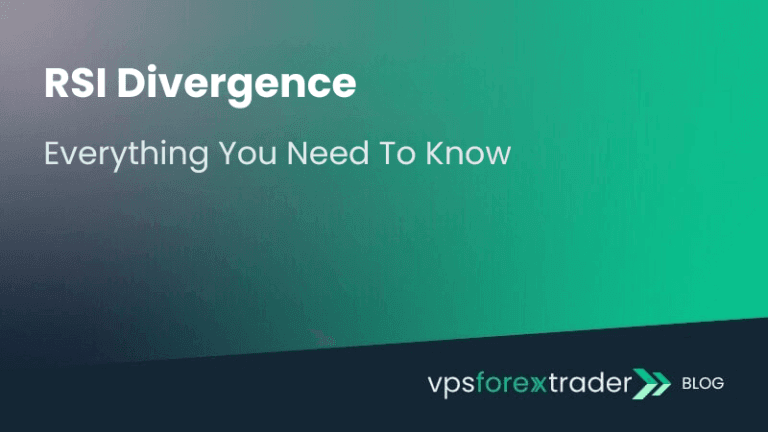If you’ve just embraced the world of automated trading, you must already know that you need a Virtual Private Server (VPS). There are plenty of providers that sell VPS optimized specifically for Forex trading, but you may be wondering, why not simply use a regular Windows VPS?
Before you subscribe to just any VPS plan, you must understand the distinctions between a regular Windows VPS and a Forex VPS from the perspective of Forex trading.
By the end of this article, you’ll know the key differences between these two types of VPS and know why you should use a Forex-specific VPS for automated trading.
Without further ado, let’s dive into it.
What’s a Virtual Private Server (VPS)?
A Virtual Private Server, or VPS for short, is essentially a virtual machine that’s sold as a service by an Internet hosting provider. Think of it as your personal slice of a physical server, complete with its own operating system, resources, and the ability to run applications just like a standalone computer.
Now, there are different flavors of VPS out there, each tailored to specific needs. In our case, we’re focusing on two types: Forex VPS, a specialized service for our fellow Forex traders, and Regular Windows VPS, the generalist of the pack.
What’s a Forex VPS?
Forex VPS is a specific type of VPS service built and optimized with you, the Forex trader, in mind. The whole idea is to provide a stable, fast, and secure environment for running your trading platforms round the clock.
Imagine it as a dedicated workstation that never sleeps, always ready to execute your trades with lightning speed. This ‘all-seeing-eye’ ensures that even when you’re away, your trading doesn’t stop. With pre-installed trading platforms like MetaTrader, it’s like having a trusted assistant who’s always on duty.
So, in a nutshell, that’s Forex VPS for you!
Related: What is Forex VPS? Everything You Need to Know
Benefits of Forex VPS
Focus on minimal latency
As experienced traders, you know that time is literally money. The speed at which your trade order reaches the broker can make a difference between making money and losing money.
Our Forex VPS is designed to ensure minimal latency. How do we do this? Two ways: ultra-fast internet connections and strategic locations of data centers.
We have our data centers located close to major Forex brokers, significantly reducing the time it takes for your trade order to travel from your terminal to the broker. It’s like living next to your workplace, the commute is just a breeze!
For regular Windows VPS providers, latency is not a top priority.
Focus on Redundancy and Reliability
Forex VPS services understand that the Forex market doesn’t sleep, and neither should your trading activities. To that end, we at VPS Forex Trader ensure maximum uptime, especially during Forex trading hours.
Having your server go down in the middle of a trade is like having a power cut in the middle of your favorite movie, frustrating and costly. But with VPS Forex Trader, you have a reliable partner that stays awake so you can rest easy, especially when the Forex market is open.
Focus on Server Security
Last, but definitely not least, is security. We’re talking about your money here, after all.
At VPS Forex Trader, we take security very seriously. From advanced firewalls to secure data encryption, we pull out all the stops to protect your trading data from hacking attempts or DDoS attacks. It’s like having a top-of-the-line security system safeguarding your home. You can trade with peace of mind, knowing that your data is secure.
In conclusion, a Forex VPS offers a trio of benefits: lightning-fast execution, non-stop reliability, and robust security. It’s like having a trusty sidekick, ready to back you up in your trading activities.
What’s a Regular Windows VPS?
Now, let’s switch gears and talk about Regular Windows VPS and why it is suboptimal for Forex trading. This is the jack-of-all-trades in the VPS world. It’s a virtual machine that runs on the Windows operating system, offering the flexibility to handle a wide range of tasks.
You can use it for hosting websites, running different applications, storing data, and yes, even for Forex trading. However, it doesn’t come with the specialized features that a Forex VPS offers.
It’s a bit like having a utility knife; it’s versatile and can handle a variety of tasks, but it may not be the best tool for specific jobs.
Why Regular VPS is Suboptimal for Forex Trading
Let’s explore why a Regular Windows VPS might not be the best buddy for your Forex trading endeavors.
Latency
First off, let’s talk about latency.
In the grand scheme of things, latency isn’t typically a top concern for a regular VPS. Remember, these are designed for a variety of tasks, and not all of them require the blink-and-you-miss-it speed that Forex trading does. Because of this, a regular VPS might not offer ultra-fast internet connections or strategically placed data centers close to major Forex brokers that a Forex VPS does.
So, while a regular VPS might be fast enough for many tasks, when it comes to Forex trading, you could end up feeling like you’re running a race with a pair of flip-flops. Sure, you’ll get there, but will it be fast enough?
Reliability
Next up is reliability. Now, don’t get me wrong, a regular Windows VPS can be reliable. But here’s the catch: it doesn’t specifically prioritize uptime during Forex trading hours.
It’s like a reliable friend who, unfortunately, might not be available when you need them the most. On the other hand, a Forex VPS is like that friend who’s always there for you, come rain or shine.
It ensures your trading activities continue seamlessly, even while you’re sleeping.
Security
Finally, let’s touch on security.
A Regular Windows VPS will offer security measures, but they may not be robust enough for Forex trading. It’s like having a decent lock on your door. It works well for everyday use, but you’d want something stronger if you were safeguarding a treasure chest, right?
At VPS Forex Trader, we understand this and fortify our servers with top-notch security measures to keep your trading data safe and sound.
Choosing the Right VPS for Your Needs
Choosing the right VPS is like picking the right vehicle for your journey. If your path is all about Forex trading, a Forex VPS might be your sportscar. With its focus on low latency, rock-solid reliability during trading hours, and iron-clad security, it’s custom-built for your trading needs.
But what if your journey involves more than just Forex trading? Maybe you don’t trade that much, or you need to run a variety of applications. In such cases, a Regular Windows VPS could be your versatile and more affordable minivan, offering more flexibility. Remember, the right choice depends on where you’re headed.
Conclusion
To sum it up, using a VPS can make a world of difference when it comes to Forex trading. Forex VPS offers minimal latency, unmatched reliability, and top-notch security, making it the perfect tool for the job. Regular Windows VPS, on the other hand, is a more generalist option, best suited for handling a variety of tasks. So, when making your decision, keep your specific needs in mind.
At VPS Forex Trader, we understand the importance of having the right tools for your trading journey. That’s why we offer a variety of Forex VPS plans tailored to meet your specific needs. Why not explore our plans and see which one is right for you? Subscribe to one of our Forex VPS plans today and let us help you reach your trading goals.
Frequently Asked Questions (FAQ)
1. Can I use a regular Windows VPS for Forex trading if I configure it properly?
Yes, technically you can. However, a regular VPS often lacks key features optimized for trading—like low-latency connections to broker servers, 24/7 monitoring, and pre-installed trading environments. If you’re confident managing all configurations yourself and latency isn’t critical, a regular VPS might work. But for most traders, especially those running automated systems, a Forex VPS is far more efficient and reliable out of the box.
2. How do Forex VPS providers reduce latency compared to regular VPS hosts?
Forex VPS providers typically place their servers in or near financial data centers—like NY4 (New York), LD4 (London), or TY3 (Tokyo)—where major brokers host their trading infrastructure. This physical proximity allows for ultra-low ping times, often under 5 milliseconds. In contrast, regular VPS hosts may be located in data centers optimized for general web hosting or enterprise use, not trading.
3. Do all Forex brokers support VPS usage?
Most reputable Forex brokers support trading via a VPS, and some even offer integrated solutions or free VPS services for clients who meet specific trading volume or account size criteria. That said, always confirm with your broker. Some platforms may require specific port access or restrict the number of logins per account when accessed via external servers.
4. Is there a difference in uptime and reliability between Forex VPS and regular VPS?
Yes. Forex VPS providers usually offer guaranteed uptime of 99.9% or higher, often with 24/7 monitoring and auto-restart features. These are critical in live trading, where a few minutes of downtime can cost real money. Regular VPS providers may not prioritize real-time availability to the same degree and may schedule system maintenance without trader-friendly warnings.
5. Are Forex VPS plans more expensive than standard Windows VPS hosting?
Not necessarily. While Forex VPS plans may appear slightly more expensive, they often include performance tuning, security layers, low-latency routing, and trading-specific support—all of which would require time and effort to configure manually on a standard VPS. In short, you get what you pay for: a trading-ready environment with fewer setup headaches.
6. Can I run multiple MetaTrader terminals on a Forex VPS?
Yes, as long as the VPS has sufficient resources (CPU, RAM, and bandwidth), you can run multiple instances of MetaTrader 4 or 5, or even mix with other platforms like cTrader. Many Forex VPS providers offer scalable plans depending on the number of platforms or accounts you want to manage simultaneously.
7. What should I look for when choosing a Forex VPS provider?
Prioritize low-latency server locations (close to your broker), 24/7 uptime monitoring, strong customer support, SSD-based storage, dedicated CPU resources, and clear compatibility with your trading platform. Bonus points if the provider offers broker-specific latency benchmarks, trial periods, or one-click MT4/MT5 setup.
8. Can I use my Forex VPS for other tasks, like browsing or hosting files?
Technically yes—but it’s not recommended. A Forex VPS should be treated as a dedicated trading environment. Running unrelated software or web browsers can consume valuable resources, slow down execution times, or even open the server up to unnecessary security risks.
9. Do I need technical knowledge to manage a Forex VPS?
Not much. Most Forex VPS solutions come pre-configured or with simple instructions to install your trading platform. Providers often offer user-friendly dashboards or even managed support to help with platform installation and troubleshooting.






